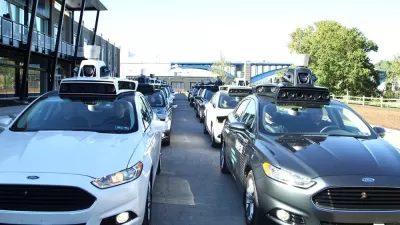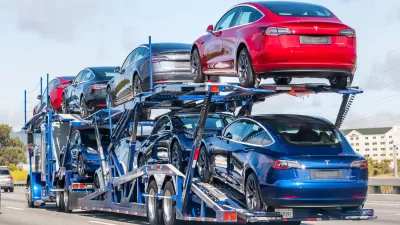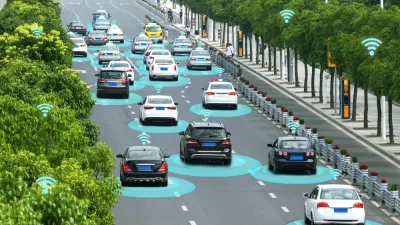The slow progress of autonomous vehicle and electric vehicle technology in gaining widespread traction in the transportation market is casting doubt on the ambitious statements of a few years prior.

Jeffrey Rothfeder writes a long-read on a lack of progress in the autonomous vehicle industry, which reveals plenty of reason for skepticism about the past promises from industry leaders about the pace of change in the transportation sector.
Evidence for skepticism takes many forms, like court documents unsealed in 2017 related to a lawsuit filed against the ride-sharing company Waymo, Google’s self-driving car unit. "Simply put, Uber—and, as it turns out, many other automobile manufacturers—have been wildly overpromising," reports Rothfeder.
Many of Uber's projections were made without any data to back up their aggressive timeline. Assumptions and estimates deployed, not projections that have proven accurate.
After the court documents were unsealed, Uber officials have taken a more cautious approach. Earlier this month, "the company’s CEO Dara Khosrowshahi said at an Economic Club meeting in Washington, DC, that it will take more than 50 years for all Uber cars to be driverless, a lifetime away," writes Rothfeder.
Rothfeder finds many more examples of the same kind of exuberance in the electric vehicle realm. The reality has proven wildly underwhelming compared to projects. For instance, "in 2010, J.D. Power and Associates predicted that within a decade, global hybrid and EV annual sales would top five million units. The EV segment is nowhere near that goal and, if anything, is retrenching.
There is a lot more detail, evidence, and anecdote provided in this long read. The business of transportation technology research and development is changing as the challenges of delivering widespread, systematic change in mobility become more obvious than the over exuberance of tech "visionaries."
FULL STORY: For years, automakers wildly overpromised on self-driving cars and electric vehicles—what now?

Alabama: Trump Terminates Settlements for Black Communities Harmed By Raw Sewage
Trump deemed the landmark civil rights agreement “illegal DEI and environmental justice policy.”

Planetizen Federal Action Tracker
A weekly monitor of how Trump’s orders and actions are impacting planners and planning in America.

The 120 Year Old Tiny Home Villages That Sheltered San Francisco’s Earthquake Refugees
More than a century ago, San Francisco mobilized to house thousands of residents displaced by the 1906 earthquake. Could their strategy offer a model for the present?

Opinion: California’s SB 79 Would Improve Housing Affordability and Transit Access
A proposed bill would legalize transit-oriented development statewide.

Record Temperatures Prompt Push for Environmental Justice Bills
Nevada legislators are proposing laws that would mandate heat mitigation measures to protect residents from the impacts of extreme heat.

Downtown Pittsburgh Set to Gain 1,300 New Housing Units
Pittsburgh’s office buildings, many of which date back to the early 20th century, are prime candidates for conversion to housing.
Urban Design for Planners 1: Software Tools
This six-course series explores essential urban design concepts using open source software and equips planners with the tools they need to participate fully in the urban design process.
Planning for Universal Design
Learn the tools for implementing Universal Design in planning regulations.
Clanton & Associates, Inc.
Jessamine County Fiscal Court
Institute for Housing and Urban Development Studies (IHS)
City of Grandview
Harvard GSD Executive Education
Toledo-Lucas County Plan Commissions
Salt Lake City
NYU Wagner Graduate School of Public Service





























